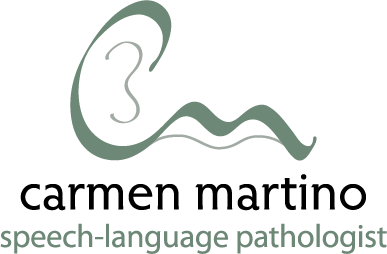...because communication matters!
Communication is more than what happens when your lips move! There are many skills involved in being an effective communicator and if one of those skills doesn't work well, then it could affect your ability to interact with others and to learn.
communication means:
- listening: understanding and remembering what you hear.
- speaking: speech sounds, voice, use of words and sentences.
- social language: understanding and using non-verbal language (it makes up about 80% of our communication!), understanding and using language that allows us to "fit in" and be social.
- reading: understanding words and sentences; understanding texts, emails, news articles and textbooks.
- writing: knowing how to write words and sentences and putting them in a text, email, or a story that makes sense.
- thinking: all those "foundation" skills that help us with all of our other skills, like attention, memory, reasoning, and problem solving.
Speech-Language Pathology involves the assessment and treatment of any or all of these skill areas to maximize your ability to interact with others and to help you learn.
areas of practice
- traumatic brain injury
- concussion
- developmental delays
- neurological disorders (eg. stroke, Parkinson's)
- voice disorders
- articulation delays
- language delays
- swallowing disorders in adults
training & course completion
- Cognitive-Communication Disorders 1 & 2
- Oropharyngeal Dysphagia (Swallowing - Adults)
- Hanen

